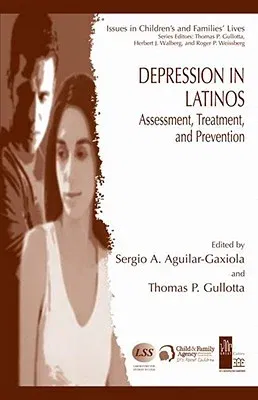Depression ranks as a leading mental health problem among Hispanic
immigrants and their US-born children. And a wide array of
issues--starting with the widespread stereotype of the "illegal
immigrant"--makes the Latino experience of this condition differ from
that of any other group. Depression in Latinos consolidates the
conceptual, diagnostic, and clinical knowledge base on this salient
topic, providing coverage from prevalence to prevention, from efficient
screening to effective interventions.
In this concise yet comprehensive volume, leading clinicians,
researchers, and academics offer extensive research and clinical
findings, literature reviews (e.g., an in-depth chapter on the Mexican
American Prevalence and Services Survey), and insights gathered from
first-hand experience in clinical practice. Perceptive information is
offered on the most urgent and complex issues on depression in this
diverse and dynamic population, including:
- The impact language, culture, and societal factors have on depression
and its diagnosis.
- The most relevant assessment instruments.
- How depression manifests among Latino children, youth, and seniors as
well as in Latinas.
- The relationship between depression and substance abuse.
- The most effective evidence-based treatment methods.
- The efficacy of interventions for depression at the community level.
Depression in Latinos is vital reading for clinicians, counseling and
school psychologists, psychiatrists, clinical social workers, and public
health professionals interested in providing their Hispanic clients with
the most effective treatment possible. In addition, its coverage of the
broader issues of access to care makes this volume essential reading for
mental health administrators, volunteer/outreach agencies, and
policymakers.

